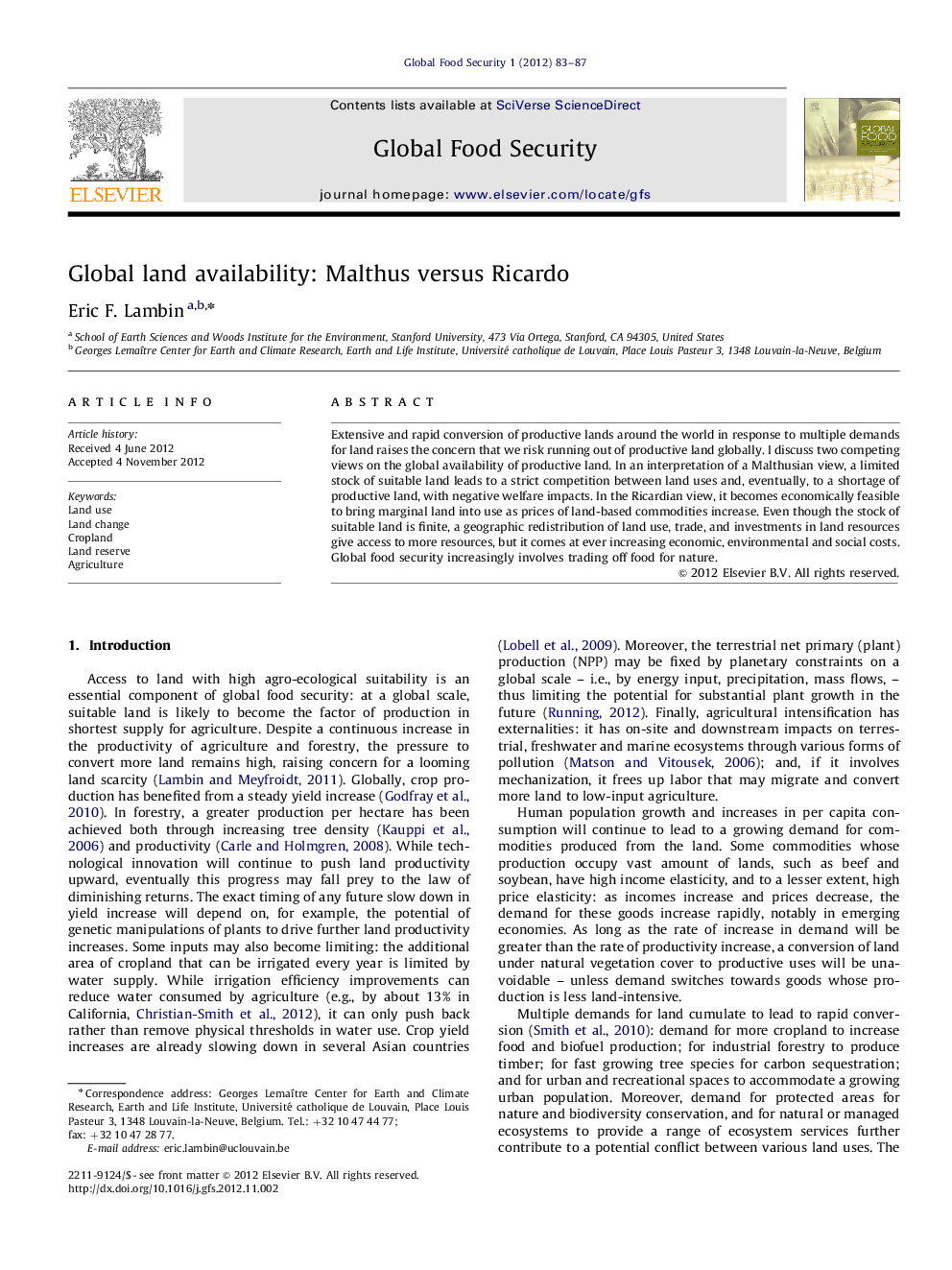| Article ID | Journal | Published Year | Pages | File Type |
|---|---|---|---|---|
| 1047587 | Global Food Security | 2012 | 5 Pages |
Extensive and rapid conversion of productive lands around the world in response to multiple demands for land raises the concern that we risk running out of productive land globally. I discuss two competing views on the global availability of productive land. In an interpretation of a Malthusian view, a limited stock of suitable land leads to a strict competition between land uses and, eventually, to a shortage of productive land, with negative welfare impacts. In the Ricardian view, it becomes economically feasible to bring marginal land into use as prices of land-based commodities increase. Even though the stock of suitable land is finite, a geographic redistribution of land use, trade, and investments in land resources give access to more resources, but it comes at ever increasing economic, environmental and social costs. Global food security increasingly involves trading off food for nature.
► Multiple land uses compete for productive land that is increasingly scarce. ► Land use zoning can decrease conflicts between land uses. ► Ecological costs of land conversion is a greater concern than supply of suitable land. ► Food security involves trading off food for nature for sustainable food production. ► The “peak land” metaphor should be avoided as soil is a renewable resource.
